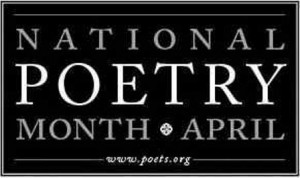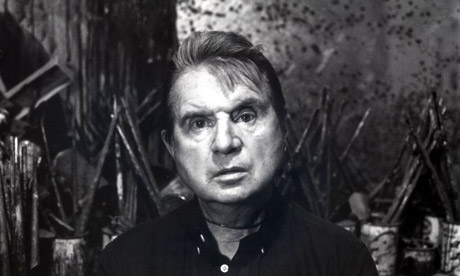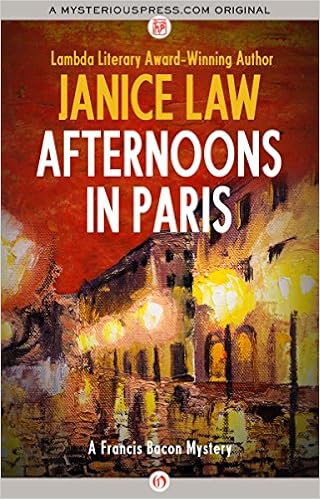Like poor Rose at the end of
Titanic, clinging to a piece of wood in the frozen Atlantic Ocean, using the last of her strength to blow a whistle to attract rescuers who've missed her, then weakly, hoarsely yelling, "Come back! Come back," I find myself wishing some people would come back too.
Well, my wishes are about fictional characters, but they feel like real people to me. And they've all been missing since 2013.
With less than two weeks until Malice Domestic (a wonderful fan convention held every spring in Bethesda, Maryland, honoring the traditional mystery), I find myself thinking about mystery characters I wish would come back. I'm not talking about characters created by authors who have died--there's no way they're coming back, not in their original author's form, anyway. And I'm not talking about characters whose authors regularly put out a new book every year or so. This column is devoted to characters whose authors seem to have moved on or are taking too long of a break (in this devoted reader's perspective).
With respect and love, I wish the following authors would get a move on:
Stephanie Jaye Evans
I'm starting with you, Stephanie, because you're scheduled to attend Malice Domestic, and I want you to be prepared. I am going to hound you at the convention, begging and pleading for more stories in the Sugar Land Mystery Series about family man and Texas minister Bear Wells, who becomes a sleuth. Here's what one reviewer said of Stephanie's wonderful first book,
Faithful Unto Death:
“Praise be! A new series with a soul, a heart, and a down-home Texas
twang. Preacher Bear Wells is an entirely original sleuth and author
Stephanie Jaye Evans is that real rarity: a debut writer with dead-on
dialogue, winning characters, and—
mirabile dictu! —nimble plotting.” — Susan Wittig Albert, national bestselling author of the China Bayles mysteries
Faithful Unto Death, was a finalist for the 2012 Agatha Award for Best First Novel. Stephanie has a great second book in the series,
Safe From Harm, which came out in 2013. For four long years I've been waiting oh so patiently, hoping for more. Please, Stephanie, may I have some more?
Chris Grabenstein
Chris, I know your heart--and your time--belong to middle-grade readers. Between writing books with James Patterson (how can I get in on that gig?) and writing your own extremely successful books for kids, you don't have time anymore for your mysteries for grown-ups. (I was going to write that you didn't have time for your
adult mysteries, but that has a completely different connotation.) But I wish we could add more hours to the day because I miss your John Ceepak mysteries. Oh, heck. Let's be honest, I long for them. Yes, I admit it: I have a crush on your character John Ceepak, and given how long it's been going on, I feel comfortable saying it's not going away.
Ahhh. Ceepak. A cop with a moral code. A decent, generous, wonderful man. If I can't have this romance in real life, come on, Chris, let me have it on paper. Please! I long to return to Sea Haven, New Jersey, and investigate more cases with John and his partner, Danny Boyle. Sure, I could re-read the eight books in your Anthony Award-winning series, starting with 2005's
Tilt-A-Whirl and ending in 2013's
Free Fall. But it's been four years since the last book. I need more. Please, Chris. Just give me a little more.
Sara J. Henry

Sara, Your first novel, 2011's
Learning to Swim, was nominated for a gazillion awards (and won the Anthony and Agatha awards for best first novel as well as the Mary Higgins Clark Award). It deserved every bit of praise. I loved
Learning to Swim so much that I told practically everyone I knew in 2011 about it. I gushed, Sara. Gushed. It was disgusting. So you can imagine how happy I was to read the 2013 follow-up,
A Cold and Lonely Place. I love watching your main character, reporter Troy Chance, as she struggles to right (and write) wrongs. Your books have been described as "compulsively readable," and I agree wholeheartedly. I long to be compulsive again. On behalf of your fans, give us more Troy books, Sara. Please please please.
Julia Spencer-Fleming
Unlike a lot of authors, you usually have a new book come out every two years instead of annually. And that's okay. When someone writes books as good as yours, you can take any reasonable amount of time you need between books. But come on, Julia. We're both nonpracticing lawyers here, so we know there are limitations to how far you can stretch the meaning of the word
reasonable, and I think we've hit the limit. It's been four agonizing years. I need more Clare. I need more Russ. I need more murder in the Adirondacks.
I remember how taken I was with the small town of Millers Kill, New York, when I came upon your first book,
In the Bleak Midwinter. It has one of the best opening lines ever and a hell of an engaging plot. My love for the town grew over the series' eight books. Despite all the murders, it seems like a lovely place to live. I know others agree with me. Your books have won practically every award out there. Your latest book, 2013's
Through the Evil Days, can't be the end of the series. I need to know what happens with Clare and Russ and ... Well, I'm not going to ruin it for people who haven't read the book yet. But you know what I'm talking about, Julia. Come on. Please don't leave me hanging. I need more.
2013
And that leaves me with wondering what the heck was going on in 2013 that made all these wonderful authors hit the brakes. Could it be a coincidence that all of them haven't had a new book out since then (or, for Chris, an adult book)? We mystery writers don't believe in coincidence. So there must be a reason. Are you all working on a big book together?! No. That would be too much to hope for. Is there a curse going on? No, I don't believe in curses either. ... Well, I'm out of ideas. So I'll just have to end this blog with my plea one more time. Get plotting, get typing, and get publishing, people. In the immortal words of Oliver Twist: Please, sir (and ma'ams), I want some more.
PLEASE.
*****
While I have your attention, in case you missed earlier posts: the Agatha Award will be given out in six categories during the Malice Domestic convention at the end of this month. I have a short story, "The Best-Laid Plans," short-listed in the short-story category. The competition is pretty fierce. Fellow SleuthSayers B.K. Stevens and Art Taylor are up for the award, as well as authors Gretchen Archer and Edith Maxwell. You can read about all five of the nominated stories by clicking
here, and you'll also be able to click through to read the stories themselves. I hope you'll check them all out and read before you vote. (I'm also blogging today at B.K. Stevens's blog, analyzing my thought process behind the first two pages of "The Best-Laid Plans." I hope you'll stop by there too. You can read that post
here.)
Once you finish reading, it's time to start packing. I'm looking forward to seeing so many of you at Malice Domestic in two weeks. (Stephanie Jaye Evans, this means you!)








































































 No, not that one, this one:
No, not that one, this one: 













